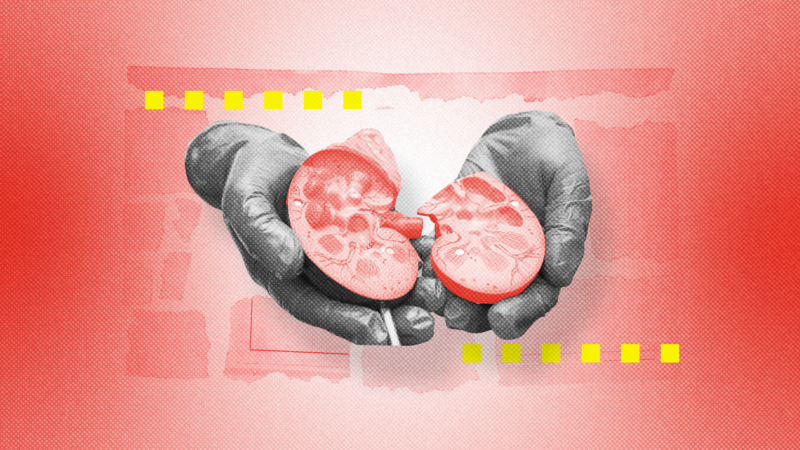Why We Can't Have Nice Things: The Case of the 17,000 Missing Kidneys
Also: Could legalizing the sale of kidneys and other organs save lives?

There are more than 100,000 Americans on the waiting lists to receive an organ transplant, and many of them will die without ever getting one.
At least some of those lives would be saved if the monopoly government contractors managing America's organ donation system weren't so bad at their jobs, argues Jennifer Erickson.
"Monopolies don't work and government-funded monopolies are even worse," says Erickson, a senior fellow at the Federation of American Scientists (FAS), on the newest episode of Why We Can't Have Nice Things. "It's hurting patients. It's hurting the taxpayers. And we've got to get to some real accountability."
According to researchers at the University of Pennsylvania, about 28,000 donatable organs are going uncollected each year from people who have died after agreeing to be organ donors. That total includes 17,000 kidneys. Additionally, one in every five kidneys is thrown away after being harvested, rather than making it to a recipient.
Those missed opportunities mean longer waits on the transplant list, but it also means higher costs for taxpayers. Every Medicare patient who gets a new kidney this year will save taxpayers $250,000 in future dialysis costs, according to FAS' research.
However, the government contractors who are supposed to be doing the work of connecting donors with recipients keep dropping the ball. There are 56 organ procurement organizations (OPOs) operating in exclusive territories around the country. A 2019 study found that just six of them were collecting at least 50 percent of the available donated organs in their zones.
The federal monopoly contractor supposed to oversee those local monopolies has problems too. A 2021 Department of Health and Human Services report concluded that the single-source contract for the United Network for Organ Sharing meant the organization had "little to no incentives" to improve its operations.
Finally, that's starting to change—but could even bolder reforms make more organs available to those in need?
Sally Satel, a senior fellow at the American Enterprise Institute (and the beneficiary of a kidney donation), joins the podcast to make a case for compensating donors—something that is currently forbidden by federal law.
"We romanticize altruism," says Satel. "We shouldn't be blinded by that sentiment, which is magnificent, but blind to the point where we allow people to die, because that's the only kind of system that we will permit."
Further reading for this week's episode:
"Reforming Organ Donation in America," The Bridgespan Group
When Altruism Isn't Enough: The Case for Compensating Kidney Donors, by Sally Satel
"How To Stop Losing 17,000 Kidneys," by Santi Ruiz, Substack
"UNOS Transplant Network Depends on Out-of-Date Technology," by Joseph Menn and Lenny Bernstein, The Washington Post
- Producer: Hunt Beaty


Show Comments (12)